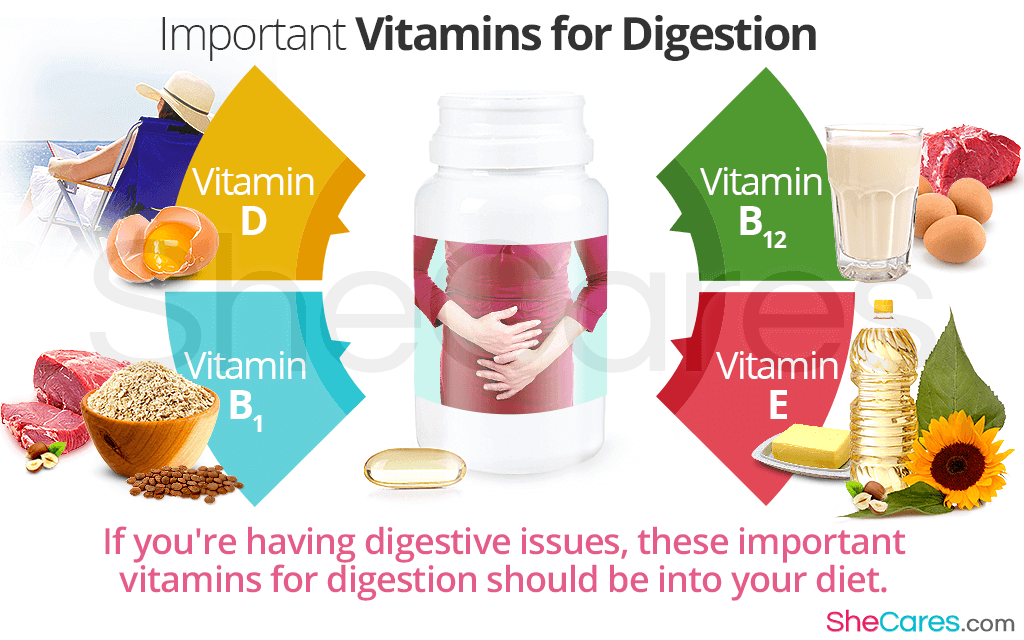Vitamins are a crucial part of how our bodies operate, especially our digestive system. The right foods, with the right vitamins, help to make sure our bodies function properly during women's lives. If you're having digestive issues, there may be a few vitamins for digestion that could help women.
Vitamin D
Vitamin D is crucial for helping nerves work correctly in the body and transmit and receive signals. This may seem unimportant for digestion, but nerves are deeply involved in the working of the digestive system. They help the intestines move food along and figure out how to best control the digestive process, and all of this can be accomplished due to vitamin D.
The best way to get enough vitamin D is to get plenty of sun exposure since it is through exposure to the sun that the body normally receives its vitamin D. In addition, there are supplements that can provide this vitamin, and some foods like liver and eggs may provide small amounts as well.
Vitamin B1
Also called thiamine, vitamin B1 can help regulate the digestive system by helping the body convert food into fuel, especially carbohydrates. Because it works on this process, it is an essential part of the digestive system. Without vitamin B1, you may not be able to properly digest or process carbohydrates.
You can find vitamin B1 in foods such as beef, nuts, oats, eggs, seeds, and legumes. There may also be added vitamin B1 in some pastas or breads that you eat. Another option is to take a vitamin B1 supplement.
Vitamin B12
Another vitamin in the B group, vitamin B12 is essential in the use of enzymes in the body, which are crucial in the process of breaking down food to digest it. It can be difficult to absorb enough of this vitamin for some people with digestive illnesses. Celiac disease and Crohn's disease are especially likely to cause a deficiency of vitamin B12.
In order to receive enough of this vitamin, you should eat plenty of animal products such as meat, poultry, eggs, and dairy. There are some vegetable sources of vitamin B12, but not as many and they are not as easily absorbed by the body.
Vitamin E
Although the research on vitamin E is not conclusive, a deficiency of this vitamin has been linked to digestive disorders that cause problems in the digestion of fat. This means that vitamin E may be useful in the healthy digestion of fats and possible other food groups.
Vegetable oils, green vegetables, and nuts provide some of the best sources of vitamin E. However, it may be found in fortified margarines and juices, and can also be taken in supplement form.
These important vitamins for digestion should be added into your diet to ensure that you are receiving the proper amounts to keep your digestive system healthy. To learn more about digestive issues, read about the most common digestive system problems or diseases.

